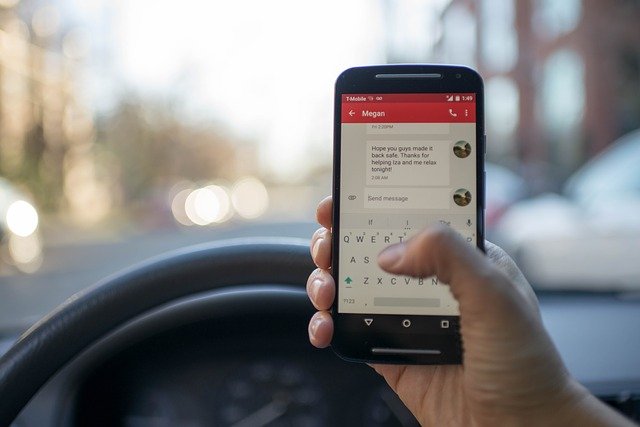How to Prevent Your Teenager From Texting and Driving
Having your teenager behind the wheel of a car is scary enough on its own. It can be made even more challenging by the fact that you can’t control what they do when they’re driving. But when it comes to texting and driving, you might have more influence than you realize.
Texting and Driving: A Serious Problem
“Every split second you spend with your eyes on the phone instead of on the road puts yourself and everyone around you in immediate jeopardy,” Console & Associates, P.C. explains. “But don’t take our word for it. Look at the facts. These numbers don’t lie, and the story they tell is a bleak one.”
Here are a few of the U.S. data points they’re referring to:
- 1 in 4 car accidents is caused by texting and driving.
- In 2019, distracted driving was a reported factor in more than 8 percent of all fatal crashes.
- Every year, 3,000 teenagers die in crashes caused by texting while driving. (For perspective, 2,700 teens are killed in drunk driving accidents.)
- At any given point in time, there are more than 415,000 vehicles being operated by someone using a handheld device.
- Device-related distractions cause 1.6 million crashes each year. These crashes result in an average of 390,000 deaths annually.
That’s not a pretty picture. And as a parent, you have to make sure your teenage driver doesn’t become a statistic.
Ways Parents Can Prevent Teens From Texting and Driving
As a parent, you know your child’s personality and behavior best. So as you read through the following tips, consider which combined approach will work best with your teenage driver.
1. Have Regular Talks
Like anything important in life, having a regular dialogue about texting and driving is the key to educating, informing, and influencing your children to be more responsible behind the wheel.
The time to start talking about texting and driving is well before they get their permit or license. Bring it up early and often, and then double down once they get their own set of keys.
2. Set Consequences
You want to lead with easy, non-threatening conversations. But if your child proves to be irresponsible and rebellious, you might have to attach consequences to texting and driving. This is where it’ll really click.
Remind your teenager that driving is a privilege, not a right. And as long as you’re the one paying for the insurance, car, and/or gas, you have every right to take the keys away.
Set strict rules and warn them that you’ll punish them for not obeying the law. The first time you catch them texting and driving, you might take away their car for a week. The second time it’s a month. The third time it’s a full semester. (The key is to follow through so they know you’re serious.)
3. Optimize Phone Settings
Whether your child has an iPhone or Android, there are certain native features and settings that prevent distractions while driving. The iPhone, for example, has a “Do Not Disturb” feature that can be set up to automatically turn on in a moving vehicle. This temporarily blocks all notifications.
4. Try These Apps
In addition to native settings, there are a variety of apps designed to prevent texting and driving (as well as help parents analyze how their teenagers are doing behind the wheel). Good options include LifeSaver, TrueMotion Family, and AT&T DriveMode.
Set the Right Example
At the end of the day, all of your words, requirements, and rules will fall on deaf ears if you aren’t setting an example and leading with your own actions.
Texting and driving isn’t just a problem that plagues teenagers – it’s also an issue for adults. In fact, adults text and drive at the same right as teenagers.
Are you guilty of doing the very thing that you tell your children not to do?
If you want to prevent teens from driving distracted, lead by what you do (regardless of whether or not they’re in the car with you). Not only will your children be more likely to listen, but you’ll also feel less hypocritical. And as an added benefit, you’ll lower your own risk of being involved in a deadly or debilitating accident.
I’m a single mother of 2 living in Utah writing about startups, business, marketing, entrepreneurship, and health. I also write for Inc, Score, Manta, and Newsblaze

